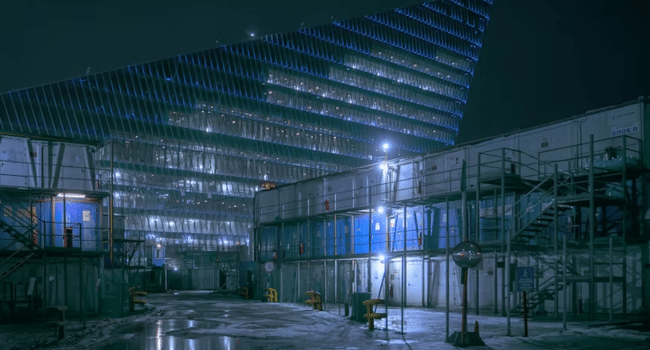Table of Contents
At night, construction in Dubai feels different. Residents sleep metres away, regulations cap decibels, and every clang or hiss travels twice as far in the still air. The only way to stay productive is to find power that works quietly: the right lighting, air systems that don’t whine, and energy sources that do their job without drawing attention. It’s why most late-shift supervisors swear by a screw compressor, because once you hear the difference, you stop wanting anything else.
The sound of control
Noise is energy without purpose. It leaks from tools that aren’t tuned, from pipes that vibrate, from machines that were designed for speed but not grace.
Night work turns that waste into a problem that you can’t really hide behind traffic. A well-run site learns to chase the quiet the same way it chases safety. The trick isn’t muting everything. It’s controlling the tone.
On a resurfacing job along a residential road, the crew swapped out their old compressors mid-project for variable-speed screws. The first night, a worker joked he could finally hear his own thoughts.
The reality was far more technical. The newer machines matched airflow to demand instead of gasping and releasing air in bursts. It made the pressure steadier and cut the hammering echo that used to rattle barriers.
What’s more, they finished two hours ahead of the usual schedule, because the operators didn’t need breaks to escape the noise. When the air is smooth and constant, people work smoothly, too.
Power that behaves after dark
Quietness is about how power, air, and light flow together. The worst sites are the ones that treat each piece of plant like a separate orchestra section. The best ones sound almost musical. Each machine tuned to the work and to its neighbours.
A project manager once described it perfectly: “At night, you hear what your site is doing wrong.” It wasn’t a metaphor. When they first started night shifts on a podium fit-out, their diesel generator sat too close to a retaining wall, because of which the exhaust echoed through the basement like a heartbeat.
Instead of shrugging it off, they turned it into an exercise in placement. The generator moved twelve metres out and got a simple enclosure made of leftover plywood and insulation sheets. It looked crude, but it dropped the reading by twelve decibels.
The crew noticed something else. There were fewer complaints from the residents across the street, and fewer headaches by sunrise. They didn’t change a thing about the power, just got better manners around it.
Lighting the stage without glare
Illumination is another kind of noise. Too bright and it blinds; too dull and it breeds mistakes. Smart night sites treat lighting like choreography, aimed where hands work, diffused where eyes rest.
LED towers with adjustable heads and hoods protect focus. You can tell the difference when a labourer doesn’t squint to read a tape or a rigger doesn’t shadow his own mark.
You can do this by replacing a scatter of floodlights with fewer, taller poles angled away from faces. It won’t necessarily spike your productivity, but it will decrease your rework.
When silence equals savings.
The financial side of it all is often hidden in the spreadsheets. Lower fuel use from variable-speed compressors, fewer delays from noise complaints, and longer tool life because nothing’s shaking itself to bits are all small gains that stack up.
Contractors operating near residential zones know the fines and restrictions that come with decibel breaches. The cost of quiet is less than the price of apology.
But there’s a subtler form of efficiency. When people don’t have to shout instructions, coordination improves. When radios don’t compete with mechanical hiss, you hear the tone of a warning before it becomes a problem.
Those moments save time, money, and so much energy.
A new kind of normal
For those who’ve only worked daytime sites, a silent one feels weird at first. But soon it becomes addictive. You realise that control has its own soundtrack: a blend of distant engines, light footsteps, and tools that do their job without shouting about it.
Night work will always have its trade-offs: fewer eyes on safety, a smaller team, the fatigue that creeps in with dawn. But technology and mindset are closing the gap. As cities densify and neighbours get closer, the quiet site is the future standard.
And when dawn finally creeps in, the machines don’t growl a goodbye. They idle, pause, and power down gently. Because a site that’s truly mastered the night doesn’t shout about it, it hums, quietly, all the way home, with its generators still whispering in the background.
